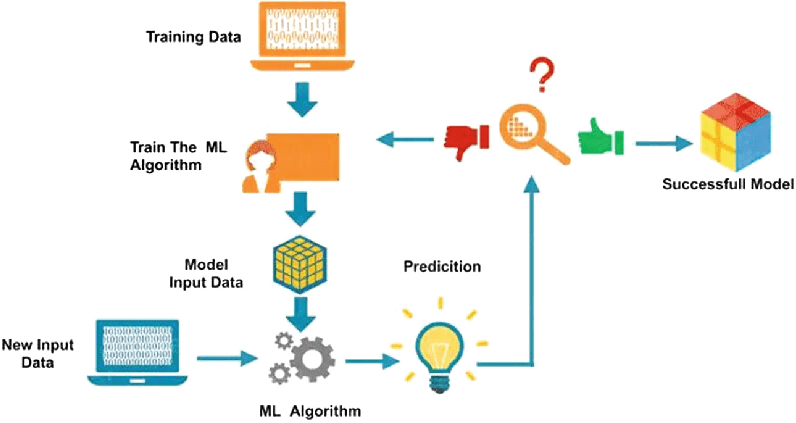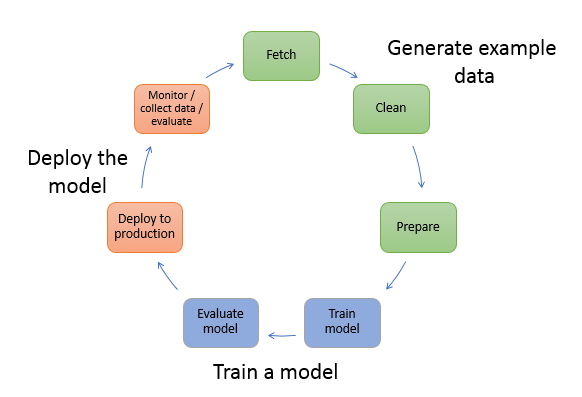
- Introduction to AWS Machine Learning Specialty Certification
- Eligibility and Exam Requirements
- Exam Structure and Format
- Key Machine Learning Concepts Tested
- AWS Machine Learning Services Overview
- Security and Compliance in AWS ML Workloads
- Model Training, Deployment, and Optimization in AWS
- AWS SageMaker and Its Role in Machine Learning Certification Preparation
- Career Benefits of AWS Machine Learning Certification
- Tips to Pass the AWS Machine Learning Specialty Exam
- Conclusion
Introduction to AWS Machine Learning Specialty Certification
The AWS Certified Machine Learning – Specialty certification is designed for individuals who wish to validate their expertise in machine learning (ML) and artificial intelligence (AI) within the context of Amazon Web Services (AWS). This certification is ideal for professionals working with ML solutions who wish to showcase their skills in developing, deploying, and maintaining ML models in the AWS cloud. Whether you are an aspiring data scientist, ML engineer, or AI specialist, this certification can open up opportunities to work with cutting-edge cloud technologies. By earning this certification, you demonstrate a thorough understanding of machine learning and its practical applications on AWS, making you a valuable asset to any organization that relies on cloud-based ML services.
Eligibility and Exam Requirements
Eligibility:
There are no strict prerequisites for taking the AWS Certified Machine Learning Specialty exam. However, AWS recommends that candidates have the following qualifications before attempting the certification:
-
Experience in Machine Learning: You should have a background in machine learning, including hands-on experience with data preprocessing, model building, training, tuning, and deploying ML models.
Experience with AWS Services: AWS suggests that candidates have at least 1-2 years of hands-on experience using AWS machine learning workflows. This includes familiarity with AWS services like Amazon SageMaker, AWS Lambda, and AWS Glue.
Understanding of Cloud Computing: Familiarity with cloud computing concepts is essential for effectively leveraging AWS machine learning services.
Exam Prerequisites:
Strong foundational knowledge of ML concepts, including supervised and unsupervised learning, deep learning, natural language processing (NLP), and reinforcement learning.
AWS ML services knowledge: A deep understanding of using and optimizing AWS services like SageMaker, EC2, S3, and Lambda for ML tasks.
Exam Structure and Format
The AWS Certified Machine Learning – Specialty exam is a multiple-choice and multiple-response exam, which consists of the following:
- Total Questions: 65 questions
- Exam Duration: 170 minutes
- Exam Cost: USD 300 (subject to change, so check AWS’s website for the latest pricing)
- Exam Delivery Method: The exam is available online (via remote proctoring) and in-person at Pearson VUE test centers.
Exam Domains and Weights:
The exam is divided into four key domains, with the following approximate weightage:
- Data Engineering (20%): This domain tests your ability to prepare and process data for machine learning models, including tasks like data collection, cleaning, transformation, and integration.
- Exploratory Data Analysis (24%): Here, you are evaluated on your ability to understand and analyze data through visualization, statistical analysis, and data exploration.
- Modeling (36%): This domain assesses your understanding of model building, selection, training, evaluation, and optimization techniques.
- Machine Learning Implementation and Operations (20%): It focuses on the deployment, automation, monitoring, and management of ML models in production environments.
- Data wrangling and feature engineering
- Data preprocessing techniques for structured and unstructured data
- Storage solutions for large-scale data (e.g., Amazon S3, Amazon Redshift)
- Statistical analysis, data visualization, and correlation analysis
- Identifying patterns in data to inform model selection
- Data normalization, scaling, and feature selection
- Supervised and unsupervised learning algorithms (e.g., linear regression, k-nearest neighbors, decision trees)
- Deep learning techniques such as neural networks, CNNs, and RNNs.
- Hyperparameter tuning and cross-validation techniques.
- Model evaluation using metrics such as accuracy, precision, recall, and F1-score.
- Model deployment strategies (e.g., Amazon SageMaker, Lambda, EC2).
- Monitoring, logging, and performance tracking of models in production.
- Scaling ML models and managing them effectively with AWS tools.
- CI/CD pipelines for ML model updates.
- Amazon SageMaker: A fully managed service that provides tools to build, train, and deploy machine learning models at scale. SageMaker is the most essential service for this exam.
- Amazon S3: Scalable object storage for storing and retrieving large datasets and models.
- AWS Lambda: A serverless computing service that runs code without provisioning or managing servers, useful for ML model inference and automation tasks.
- AWS Glue: A serverless data integration service for preparing and transforming data for machine learning.
- Amazon Rekognition: A deep learning-based image and video analysis service that enables applications to identify objects, people, text, scenes, and activities in images.
- Amazon Comprehend: A natural language processing (NLP) service that uses machine learning to find insights and relationships in a text.
- Amazon Lex: A service for building conversational interfaces using voice and text.
- Amazon Polly: A service that turns text into lifelike speech using deep learning techniques.
- AWS Deep Learning AMIs (Amazon Machine Images): Pre-configured virtual machines with popular deep learning frameworks like TensorFlow, MXNet, and PyTorch.
- Model Training: Use Amazon SageMaker to build, train, and tune models. SageMaker offers built-in algorithms and supports popular frameworks like TensorFlow, PyTorch, and MXNet.
- Model Deployment: Once a model is trained, you can deploy it to production environments using SageMaker’s managed deployment services or EC2 instances.
- Model Optimization: AWS provides tools like Amazon SageMaker Automatic Model Tuning to optimize hyperparameters and AWS Inferentia for optimized hardware-based inference.
- Monitoring: Use Amazon CloudWatch to monitor model performance, detect issues, and scale resources as needed.
- Career Advancement: It demonstrates your ML expertise, which can help you land roles such as ML Engineer, Data Scientist, or AI Specialist.
- Higher Earning Potential: Due to their specialized skills, certified professionals tend to earn more than their non-certified counterparts.
- Increased Job Opportunities: AWS ML professionals are in high demand across a variety of industries, including finance, healthcare, retail, and technology.
- Skill Validation: The certification validates your knowledge and practical skills with AWS ML services, making you a valuable asset to employers.

Key Machine Learning Concepts Tested
The AWS Certified Machine Learning Specialty exam tests various machine learning concepts. Key topics covered include:
Data Engineering:
Exploratory Data Analysis (EDA)
Modeling:
Implementation and Operations:
AWS Machine Learning Services Overview
AWS offers various machine learning services that are integral to the exam. A strong understanding of these services is crucial to passing the certification:
Security and Compliance in AWS ML Workloads
Security is a crucial aspect of working with machine learning models in AWS, particularly in production environments. Ensuring data protection involves encrypting data both at rest and in transit using AWS encryption services like AWS Key Management Service (KMS). Identity and Access Management (IAM) plays a vital role in defining roles, permissions, and policies to control access to AWS resources. Compliance with industry regulations such as GDPR, HIPAA, and PCI-DSS is essential to maintain data integrity and meet legal requirements. Secure model deployment requires following best practices to protect ML models throughout their lifecycle. Additionally, continuous auditing and monitoring are necessary to track model usage, assess performance, and prevent unauthorized access, ensuring a secure and efficient ML environment.
Model Training, Deployment, and Optimization in AWS
AWS SageMaker and Its Role in Machine Learning Certification Preparation
Amazon SageMaker is a comprehensive machine learning (ML) service within AWS that simplifies the process of building, training, and deploying ML models. It provides an array of powerful features, including SageMaker Studio, an integrated development environment (IDE) for ML workflows, and SageMaker Autopilot, which automates model building and tuning. Additionally, SageMaker Pipelines streamlines end-to-end workflows, while SageMaker Model Monitor ensures continuous performance tracking of deployed models. To enhance data labeling, SageMaker Ground Truth combines machine learning with human annotation, enabling the creation of highly accurate training datasets. For professionals preparing for the AWS Certified Machine Learning – Specialty exam, understanding SageMaker and related AWS ML services is essential. The best study resources include AWS whitepapers on machine learning and security, as well as official AWS documentation covering core services such as SageMaker, S3, and IAM. AWS Training and Certification programs offer structured learning paths, while books like AWS Certified Machine Learning Specialty by Sybex and AWS Certified Machine Learning Specialty Exam Guide by Elias Khnaser provide in-depth exam preparation. Additionally, online platforms like Coursera, A Cloud Guru, and Udemy offer specialized courses that help candidates gain practical experience and exam-specific knowledge. By leveraging these study materials and mastering AWS SageMaker, individuals can enhance their expertise and successfully achieve AWS machine learning certification.

Career Benefits of AWS Machine Learning Certification
Earning the AWS Certified Machine Learning – Specialty certification can significantly enhance career prospects. Some benefits include:
Tips to Pass the AWS Machine Learning Specialty Exam
To prepare effectively for the AWS Certified Machine Learning – Specialty exam, start by studying the AWS documentation, which serves as the most comprehensive and reliable resource. Complement your learning with hands-on practice by utilizing AWS free-tier services to build, deploy, and optimize ML models. A thorough understanding of the exam objectives is crucial—ensure you grasp each domain in depth. Additionally, taking practice exams regularly will help simulate the test environment, improve your confidence, and identify areas needing improvement. Finally, develop strong time management skills during the exam; avoid spending too much time on a single question to maximize your chances of answering all questions within the allotted time. By following these strategies and focusing on hands-on practice, you’ll be well on your way to earning the AWS Certified Machine Learning – Specialty certification.
Conclusion
The AWS Certified Machine Learning – Specialty certification is a valuable credential for professionals looking to validate their expertise in machine learning within the AWS ecosystem. By earning this certification, you demonstrate your ability to design, build, deploy, and optimize ML models using AWS services, making you a highly sought-after candidate in the industry. With the growing adoption of AI and ML technologies across various sectors, certified professionals can unlock new career opportunities, achieve higher earning potential, and contribute to innovative cloud-based solutions. To succeed in the exam, it is essential to have a strong grasp of machine learning fundamentals, hands-on experience with AWS ML services, and a solid understanding of security and compliance considerations. By following a structured study plan, leveraging AWS documentation and training resources, and practicing with real-world ML workflows, you can confidently pass the exam and take your career to new heights in the field of cloud-based machine learning.





